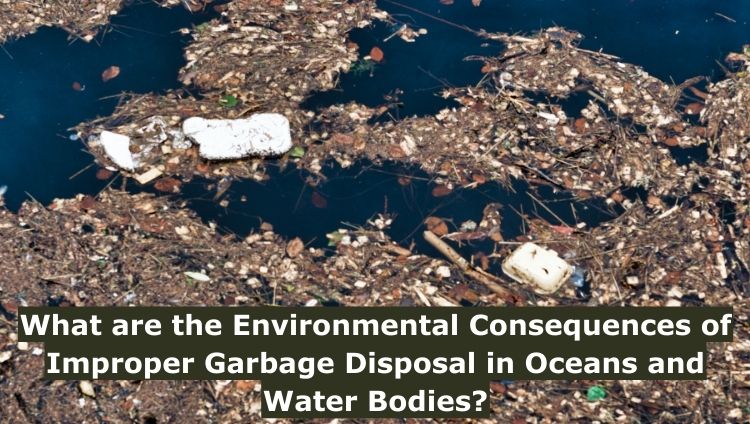The environmental consequences of improper garbage disposal in oceans and water bodies are substantial, posing a grave threat to the well-being of our planet.
Our oceans, which cover approximately 70 percent of the Earth’s surface, play a crucial role in our ecosystem, impacting not only marine life but also terrestrial creatures, including humans.
The National Oceanic and Atmospheric Administration (NOAA) reports that billions of pounds of waste and pollutants find their way into our oceans every year.
The repercussions of ocean pollution have wide-ranging effects, impacting both human health and marine ecosystems. Let’s dive deeper (pun intended) into the specifics of ocean pollution, including its causes, effects, and potential solutions.
What is meant by ocean pollution?
Ocean pollution, also known as marine pollution, is a combination of chemical contaminants and waste materials.
It occurs when chemicals and waste are either carried by water, wind, or deliberately dumped into the ocean.

What causes ocean pollution?
Ocean pollution results from a range of factors, with approximately 80% of it coming from land-based sources linked to human activities. Key contributors to marine pollution include:
Nonpoint source pollution (runoff)
This type of pollution originates from numerous dispersed sources, which makes pinpointing exact origins challenging. For examples , pollutants can come from vehicles, ships, agricultural fields, and construction sites. Runoff, where rainwater transports these pollutants from land to sea, is a frequent pathway for nonpoint source pollution to enter marine environments.
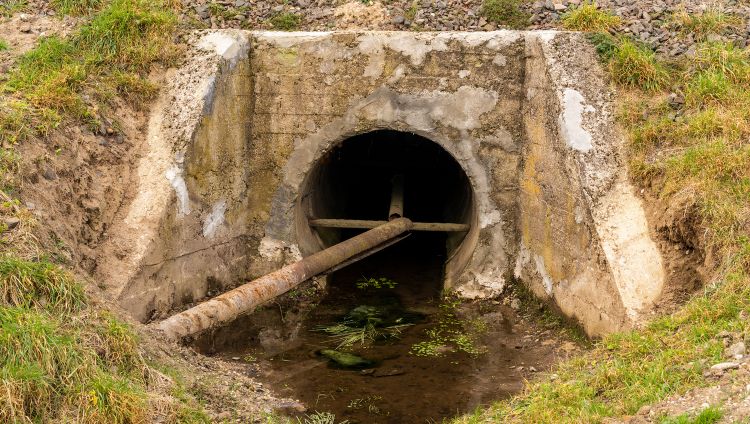
Intentional discharge
Worldwide manufacturing facilities release hazardous waste into the ocean, which includes substances like mercury, while sewage exacerbates this environmental issue. Particularly alarming is the substantial problem presented by plastic waste, with an estimated eight million metric tons entering our oceans annually.
Oil spills
Ships are significant contributors to ocean pollution, especially when crude oil spills occur. Crude oil can persist in the ocean for many years and is challenging to clean up. Notably, the 2010 Deepwater Horizon well blowout in the Gulf of Mexico, which discharged roughly 134 million gallons of oil into the ocean, stands as one of the most significant oil spills in recent history.
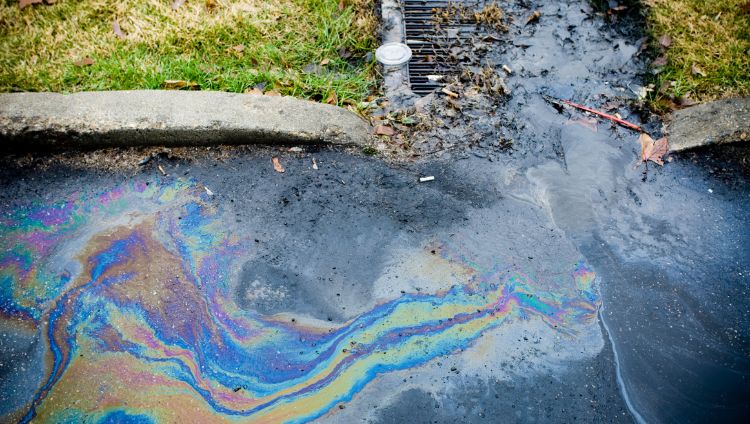
Littering
Atmospheric pollution, driven by littering, frequently transports debris into the ocean through the wind. This pollution includes single-use plastics such as plastic bags and Styrofoam containers, which can take hundreds of years to break down. It is estimated that around one trillion plastic bags are used globally each year.
Ocean mining
Deep-sea ocean mining has the potential to cause pollution and disrupt ecosystems, especially at the ocean’s greatest depths. Mining for minerals such as cobalt, zinc, silver, gold, and copper generates damaging sulfide deposits deep beneath the sea.
Effects of ocean pollution
Ocean pollution has numerous direct and indirect consequences, affecting both marine life and humans. Here are some of the most common effects of ocean pollution:
Harm to marine species
Ocean pollution frequently harms marine life. For example, oil spills have the potential to ensnare and asphyxiate sea creatures by entering their respiratory systems. Additionally, marine animals may experience ailments such as cancer, altered behavior, and reproductive challenges.
Furthermore, marine creatures are at risk of ingesting tiny plastic fragments or becoming ensnared in abandoned fishing gear, adversely affecting species such as dolphins, fish, sharks, turtles, seabirds, and crabs.
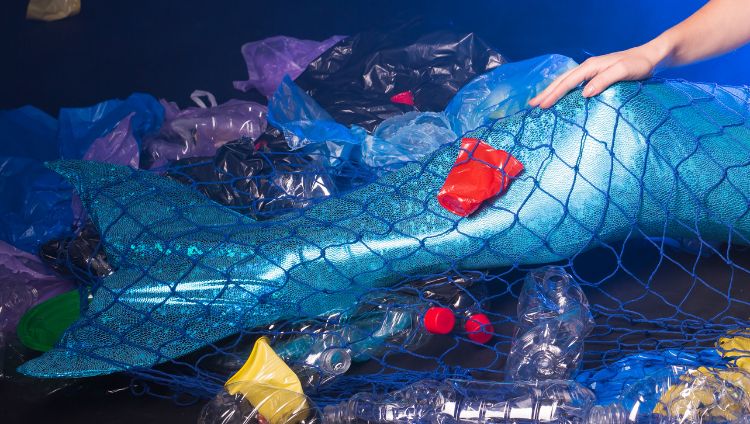
Depletion of oxygen in seawater
As debris in the ocean gradually degrades over time, it consumes oxygen in the process, resulting in reduced oxygen levels in the ocean. This can lead to the death of ocean animals such as penguins, dolphins, whales, and sharks.
Additionally, excess nitrogen and phosphorus in seawater contribute to oxygen depletion, potentially leading to the creation of dead zones where marine life struggles to survive.
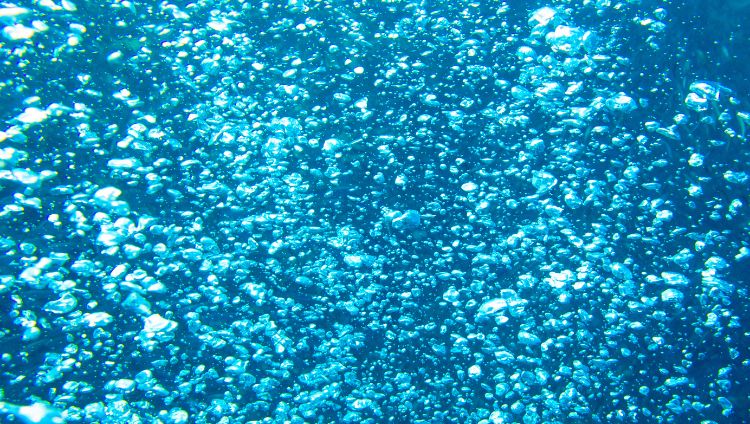
A threat to human health
Toxins in the ocean can enter the food web through small organisms that absorb these pollutants. As larger marine animals, including those consumed by humans, feed on these organisms, they accumulate the contaminants as well.
This process poses serious health risks, such as cancer or birth defects. For instance, methylmercury, a harmful substance, first accumulates in tiny marine life and then becomes more concentrated in larger fish like swordfish as they move up the food chain. Eating these fish can lead to elevated mercury levels in our bodies, which may result in harmful effects.
Frequently Asked Questions
How does plastic pollution affect marine life?
Plastic pollution endangers marine life as creatures like turtles, seabirds, fish, and marine mammals often ingest or become entangled in plastic debris, causing harm and fatalities. It can also lead to the transfer of harmful chemicals up the food chain.
What is the impact of water pollution from garbage disposal on human health?
Water pollution can have a negative impact on human health as contaminants in the water may enter the food chain, leading to long-term health conditions, cancer, and birth defects.
Why is runoff from nonpoint sources a significant contributor to ocean pollution?
Nonpoint source pollution, originating from various diffuse sources, is challenging to pinpoint and control. This runoff, often caused by everyday human activities, can transport pollutants into the ocean, adding to marine pollution.
How do oil spills contribute to ocean pollution, and what are their long-term effects?
Oil spills, especially from ships and drilling operations, can have devastating effects on marine ecosystems.
Crude oil persists in the ocean for years, impacting marine life through suffocation, behavioral changes, and reproductive difficulties.
What are dead zones in the ocean, and how do they relate to ocean pollution?
Dead zones are areas in the ocean with severely low oxygen levels, where very little marine life can survive.
Excess nitrogen and phosphorus from pollution can create dead zones, further illustrating the detrimental effects of ocean pollution.
Conclusion:
Improper garbage disposal in oceans and water bodies creates a range of problems, including plastic pollution, water pollution, habitat damage, and exacerbating climate change.
To address these issues, it is vital to promote responsible waste management, reduce plastic use, and educate people about the importance of protecting our watery environments.
The health of our oceans and water bodies is closely connected to the well-being of our planet and all living beings, including ourselves.
If you want to know more about our company, just visit the ‘About Us‘ section whenever you’d like. And if you have any questions, don’t be shy – you can contact us anytime!


